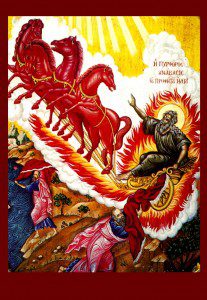This post is adapted from a sermon preached by TJ Tetzlaff on February 15, 2015 on these Scripture texts.
There is a story about a girl on her first day of college, waiting in line with her family to register for classes. And while she’s standing there she has this overwhelming feeling of anxiety and apprehension about school and she is convinced she isn’t capable of the work. And as she’s turning around to tell her parents that she can’t do it and they need  to go home, someone comes out of the building. He’s talking about his nonprofit and cracking jokes and handing out lollipops to everyone in line. And he sees her and he stops, and he looks at a young man who happened to be standing next to her and says ‘you need to give that lollipop to the beautiful girl standing next to you’. And he awkwardly does. And the man with the lollipops looks at her parents and says ‘See that! The first day away from home and she’s already taking candy from a stranger!”
to go home, someone comes out of the building. He’s talking about his nonprofit and cracking jokes and handing out lollipops to everyone in line. And he sees her and he stops, and he looks at a young man who happened to be standing next to her and says ‘you need to give that lollipop to the beautiful girl standing next to you’. And he awkwardly does. And the man with the lollipops looks at her parents and says ‘See that! The first day away from home and she’s already taking candy from a stranger!”
And she laughs and everybody laughs and in that moment her fear and anxiety is gone and she knows she can do this and doesn’t give up on school and her life is changed. For her, his appearance at just that moment was a kind of miracle which altered the course of her life.
The man with the lollipops didn’t hear about the impact that moment had on her until years later, and he can’t even remember it happening. It’s a subtle moment that completely changes someone’s life. And as strange as it is, that story makes me think of our reading today from the Old Testament, Elijah and Elisha: two names that are remarkably close but with different callings.
Just to recap what’s been going on; the land of Israel is being ruled by King Ahab and his wife Jezebel who have erected hundreds of altars to Baal- the pagan god of rain and fertility. Elijah is sent by the Hebrew God Yahweh to confront the priest of Baal on top of Mt. Carmel. He easily defeats the false priests in a test of fire, and flees to the wilderness afraid that the King and Queen may take revenge on him for humiliating and destroying their priests.
 Here in the land of Horeb, Elijah exhausted, frustrated and feeling like a failure, prays for help and is directed to several people who will aid him in his ministry, including the farm boy Elisha who is to succeed him in his calling to Israel. After years of preaching and trying to reconcile the split nations of Israel and Judah, Elijah finishes his earthly service and ascends into heaven on a fiery chariot leaving Elisha to take his place.
Here in the land of Horeb, Elijah exhausted, frustrated and feeling like a failure, prays for help and is directed to several people who will aid him in his ministry, including the farm boy Elisha who is to succeed him in his calling to Israel. After years of preaching and trying to reconcile the split nations of Israel and Judah, Elijah finishes his earthly service and ascends into heaven on a fiery chariot leaving Elisha to take his place.
Talking about Elijah and Elisha for any length of time is like practicing some sort of weird biblical tongue twister. But although similar in name and title their legacies are different.
Elijah’s ministry is filled with grand and over the top miracles that seems to place Elisha as a second-rate prophet. Elijah proclaims and then stops a three-year drought, Elisha purifies some bad spring water, Elijah defies gravity and flies into heaven with an escort of fire and heavenly bodies. Elisha defies gravity by making an ax heat float when it falls into a river.
Elijah’s ministry is accented by notes which astound and overwhelm. Elisha’s legacy is more quiet and understated. But it is not that Elisha is young and experimenting with the craft of miracle making; it’s that miracles can have an everydayness to them that can leave us wondering if they truly are miracles. They can be and frequently are quiet, like a voice whispered on a mountain top.
God can be found in the small simple everyday miracles which are so unremarkable that we walk away without being sure if what we saw was really a sacred and divine intervention, or just some peculiar kind of coincidence. And we may participate in them without ever realizing it.
We can also see this in today’s gospel; the Transfiguration of Christ on the mountaintop and Peter’s remarkable offer to construct earthly tents for heavenly beings. Peter gets a bad wrap as we look at this encounter. It’s typically used as another example of how oblivious he is to the divine mystery playing out around him. But Peter’s flaw isn’t that he tries to contain the sacred by building huts for these remarkable figures before him, That’s only an awkward attempt at hospitality. His flaw is not being able to recognize the holiness in the everyday: that Christ is transfigured not simply just on the mountaintop where the earth and the heavens meet, but also in the valley where the people are still hungry and need to be fed.
The sacredness of the world is to be found in the everydayness of life, not just in the overwhelming moments. It is the everyday which is sacred. What Peter has yet to learn is that even after you have been awed by the wonder of the divine, you then have also still have to go back into the valley. After the ecstasy you have to go back and do your laundry, and buy the groceries and cook dinner, and any number of other tasks that seem only to detract from the mountaintop, but in reality are a connection to God.
This week we enter Ash Wednesday and the season of Lent. And today when we hear of Christ hanging miraculously in the sky between two prophets this image leads us to Good Friday, when he is then hung in the sky between two criminals. And it is what happens in-between these two moments that clarifies who Christ is for us. The deeds of Jesus which are recorded in our bible are moments of profound power and inspiration that remove doubt of Christ’s authority. But just as there are moments of power and splendor, there also must have been moments of quiet compassion and soft words which would have had the same effect as a thunderbolt from heaven. Like the last few words from the Gospel of John “Jesus did many things as well. If every one of them were written down, …even the whole world would not have room for the books that would be written.” Jesus’ life was surely filled with these subtle lollipop moments that changed lives, or (like Elisha), left people wondering if it was a miracle or just coincidence. And our lives are filled with these moments as well.
How many of us have had one of these moments, where in a moment of need and discouragement someone comes to you with exactly what you needed to hear? Or you experience something a little too coincidental and wonder what that was all about. I suspect all of us have at one point or another. They may be as clear as day like seeing Christ on the mountaintop, or like Elisha’s miracles so quiet and subtle we are left wondering if it was the divine or merely coincidence.
My hope for us as we prepare for Lent and Ash Wednesday, is that we begin to grow in awareness of these sacred moments. And, if you haven’t seen one yet, my hope is that you will find periods of quiet to remember when someone changed your life, or when you may have changed the life of another. In that moment you participated in something sacred.
TJ Tetzlaff is a Lay Assistant Minister at the Episcopal Church of Our Saviour in Richmond, KY.













